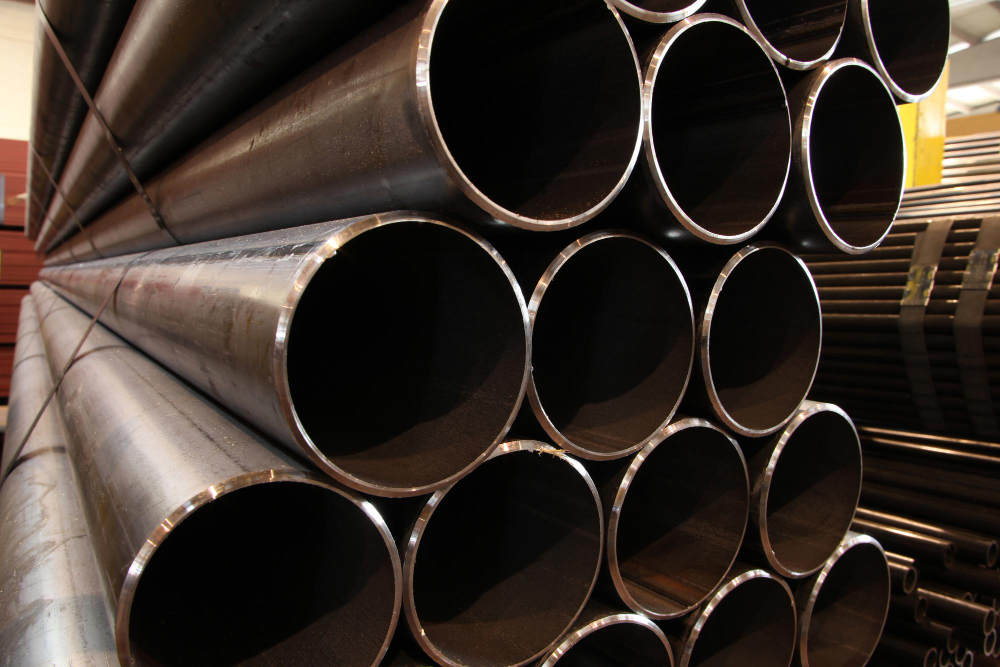In today’s advanced construction and manufacturing sectors, the journey from raw materials to a resilient and efficient structure involves much more than simple assembly. It’s a nuanced blend of techniques, among which structural steel fabrication stands out as an essential contributor to pipe beveling. Get guidance on everything you need to know to grasp these complex yet vital processes.
What Do You Understand By Pipe Beveling Process?
Pipe beveling is an essential part of structural steel fabrication that you cannot overlook. It is the act of cutting the pipe’s edge to a specific angle, which later facilitates a quality weld that holds the structure together. Beveling smooths out the rough edges and allows for a tighter, more secure joint when connected to another pipe or a fitting. Think of it as a tailor-made solution for ensuring that pipes fit together flawlessly, thus enhancing the welding strength and structural integrity.

Which Different Methods Of Beveling Exist?
- Hand-grinding: This manual method is often considered the traditional method, predominantly used for smaller-scale projects where precision isn’t the highest priority. A hand-held grinder equipped with a cutting wheel is manually guided around the edge of the pipe, grinding it down to create a beveled edge. While this method offers the advantage of low initial cost, it can be labor-intensive and may not yield the most consistent results.
- Plasma or Torch Cutter: It brings automation and precision into the picture. These machines use a high-temperature plasma jet or gas to melt and cut through metal pipes. When it comes to precision and speed, this is the method to beat. It’s particularly useful for projects that require high-volume beveling. However, these machines often come with a hefty price tag, which makes them more suitable for large-scale, high-budget operations.
- Portable Beveling Machines: These machines balance the precision of automated methods and the flexibility of manual techniques. These compact machines can be easily transported to the project site, eliminating the need to move large, heavy pipes. They are generally electric or pneumatic and can handle a variety of pipe sizes and materials. With portable beveling machines, you gain the advantage of medium-level cost and medium-level precision, making them ideal for projects that require a mix of both.
A Few Factors To Remember Before Choosing The Right Method
- Bringing Pipes to Machinery: Large machinery can be more efficient if your project is stationary.
- Machine’s Flexibility: Ensure the chosen machine can handle various angles and pipe diameters.
- Knowing the Quality & Specifications: A deeper understanding of the pipe material and specifications can guide your choice.
- Assessing the Time-Consumption: Automation may be more time-efficient, but consider the setup time.
- An Operator with Great Machinery Skill: A skilled operator can maximize the efficiency and quality of beveling.
- Assessment of Site Hazards: Safety first! Always evaluate the site for potential risks and plan accordingly.
Top Things To Keep In Mind Before Structural Steel Pipe Beveling
- Specific Angles for Various Applications: Knowing the appropriate angle for your specific use case is paramount.
- Maintaining a Consistent Length: Keep an even length throughout the pipe for uniformity.
- The Fastest Production Cycle: Time is money; choose a method that aligns with your deadlines.
- Refrain from Using Extreme Heat: High temperatures can alter pipe properties.
- Taking Precautions While Working: Always adhere to safety guidelines.
Should You Call Reliable Contractors For Structural Steel Fabrication?
- Experience in Diverse Projects: Reliable contractors bring a wealth of experience gained from a variety of projects ranging from small-scale constructions to mega-industrial installations.
- Access to Cutting-Edge Machinery: One of the many advantages of hiring established contractors is their access to the latest, high-end machinery. It is particularly crucial for processes like pipe beveling, where precision is key.
- Comprehensive Safety Measures: Safety should never be compromised and reliable contractors know this better than anyone. They adhere to all safety guidelines and regulations, ensuring a risk-free working environment.
- Transparent Pricing: Budgeting is a crucial aspect of any project; the last thing you need is unforeseen costs during sturdy structural steel fabrication. Reputable contractors offer transparent pricing, often providing detailed quotes that break down costs.
- Consistent Quality Assurance: A trustworthy contractor will have rigorous quality assurance protocols in place, covering everything from material selection to the final weld.
Your Ultimate Partner For Steel Pipe Fabrication
When in doubt, consult the experts. Contact Bigfoot Pipe and Piling for top-notch structural steel fabrication that meets your pipe beveling needs. We are ready to help you.
